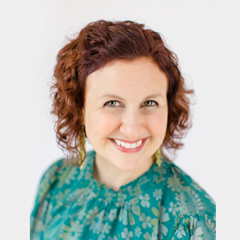In caregiving, effective collaboration and compassionate care are essential components that contribute to the well-being of caregivers and those under their care. Strategies aimed at promoting teamwork among caregivers of different roles and specialties enhance the quality of care provided and create a supportive environment conducive to personal and professional growth. To explore these strategies in greater detail, we turn to Michelle Seitzer, Founder of Caregiving Advice, for her insights and expertise.
Michelle sheds light on effective methods for promoting collaboration among caregivers and empowering them to deliver personalized and compassionate care to their clients.
I suggest implementing strategies to enhance caregiver-client rapport and information exchange. Encourage caregivers to actively engage with clients, seeking to understand their unique preferences, needs, and backgrounds. Facilitate regular communication channels where clients feel comfortable sharing insights about their likes, dislikes, and personal history.
When caring for someone else – in any capacity – you should always be learning new things. New things about the person, their diagnoses, new treatments and interventions that may help – and so on. You may feel stuck or powerless in your role if you stop learning and growing, which can affect the quality of care you provide. Additionally, ongoing training promotes professional growth, confidence, and a sense of community among caregivers, helping them navigate challenges and prevent burnout.
– Michelle Seitzer
Caring for a loved one can be both fulfilling and demanding, often leading to caregiver stress and potential burnout. To effectively address these challenges and maintain well-being, caregivers can employ the following strategies:
Emphasize the importance of their role as a caregiver, regardless of what tasks they’re supporting (medication management vs. supporting self-care, medical advocacy vs. medical appointment transportation, etc.). Everyone has something to give, and every person’s contribution as a caregiver matters. By highlighting the significance of each role, caregivers are more likely to collaborate effectively, communicate openly, and work together towards common goals, ultimately enhancing the quality of care provided.
As we can see, promoting collaboration among caregivers of different roles and specialties is a professional necessity and a deeply human endeavor. Recognizing the significance of each caregiver’s contribution, regardless of their specific tasks, can create a culture of inclusivity and mutual respect. Michelle Seitzer’s insights have provided:
In conclusion, this Expert Q&A provided a refreshing perspective. We thoroughly enjoyed Michelle’s insights and hope you find it equally enlightening.

Michelle Seitzer has been writing since she was old enough to hold a pencil. Her first love has always been words, and she’s had hundreds of articles published online and in print magazines to prove it. She’s a managing editor, contributor for several prominent healthcare brands, and a subject matter expert in aging and caregiving issues. Michelle is also the founder of Caregiving Advice, a free resource hub for caregivers of all ages. She self-published her first book, The Dictionary of Grandparents, in the spring of 2023. A special needs parent-caregiver, entrepreneur, and breast cancer survivor, Michelle lives in Pennsylvania with her family and loves to collect books and honorary grandparents.